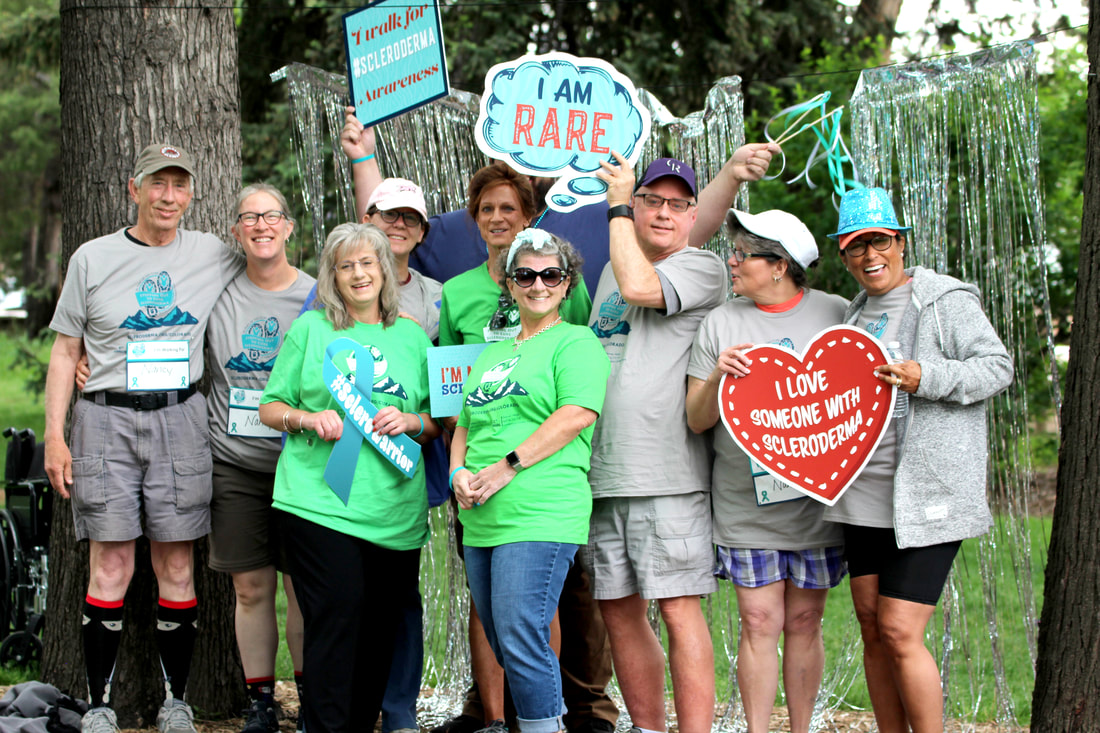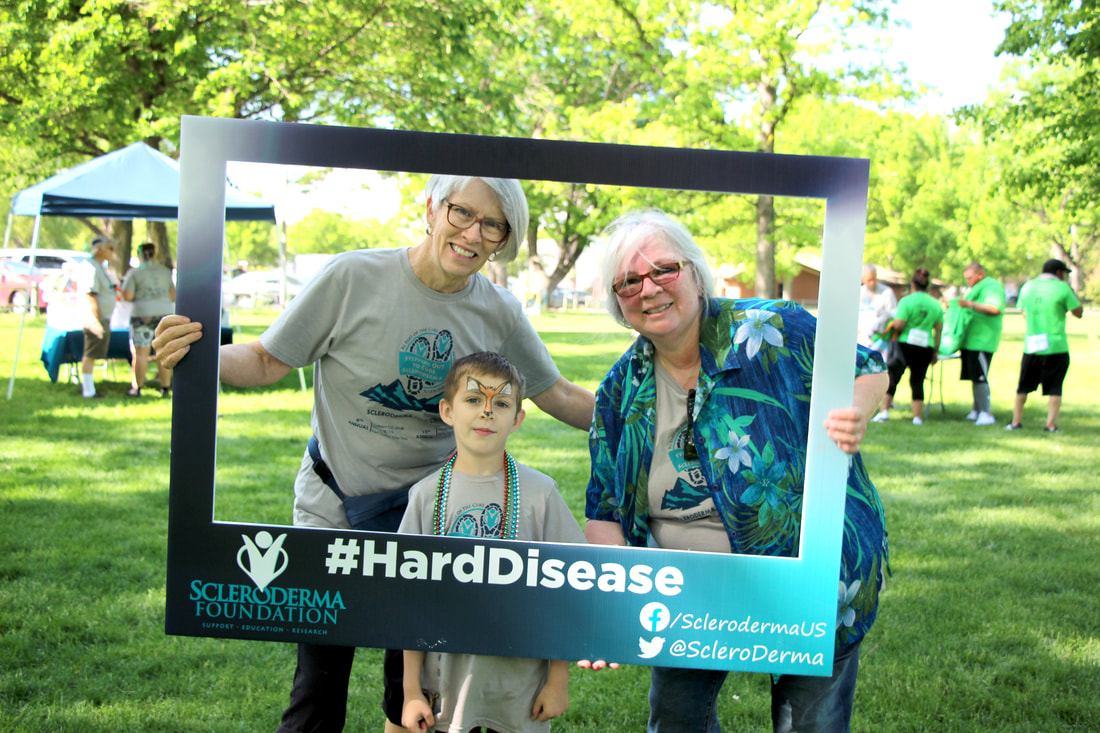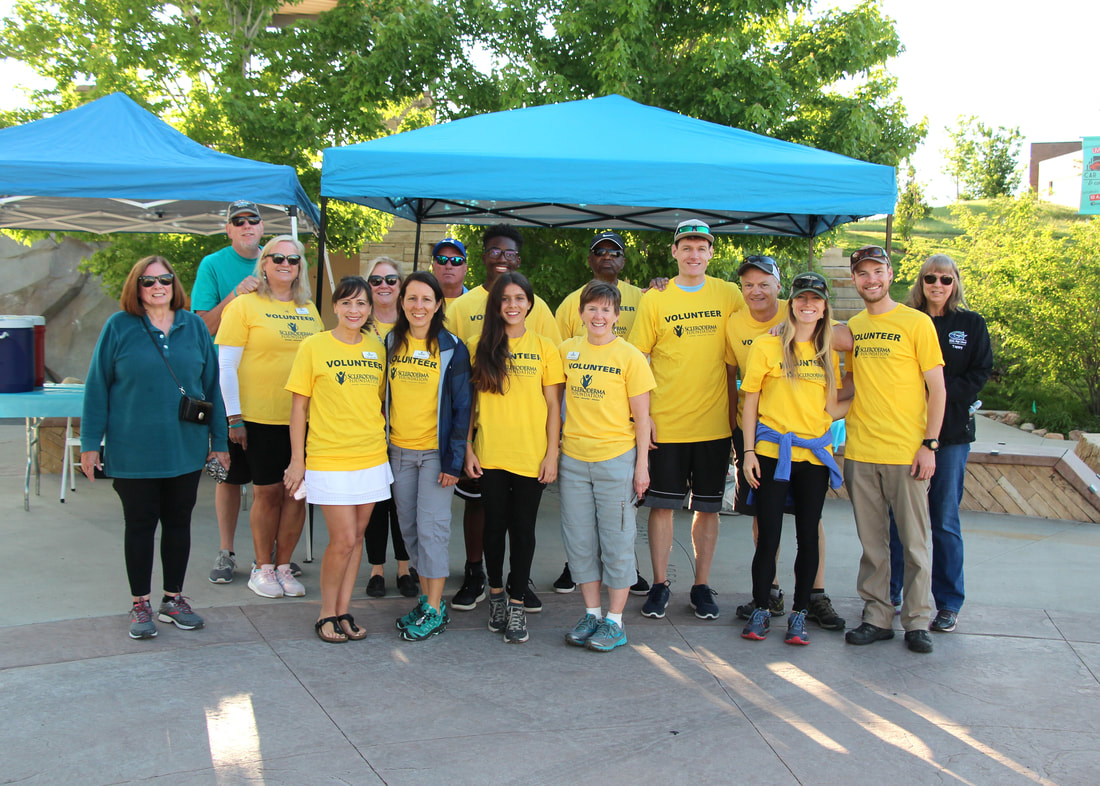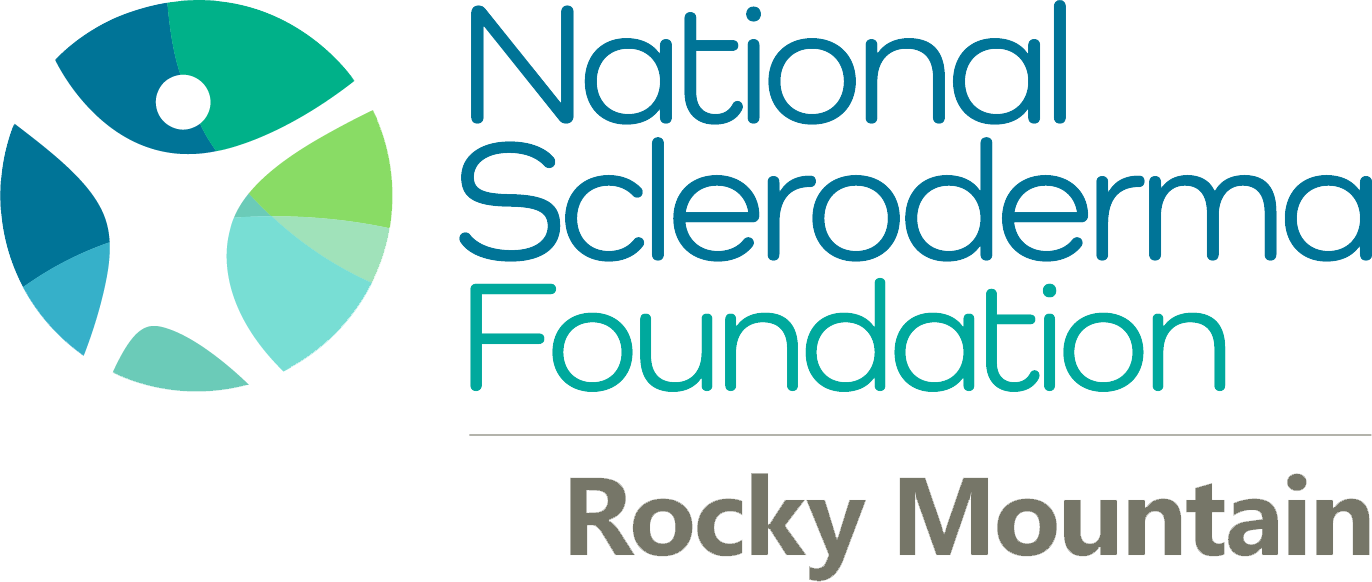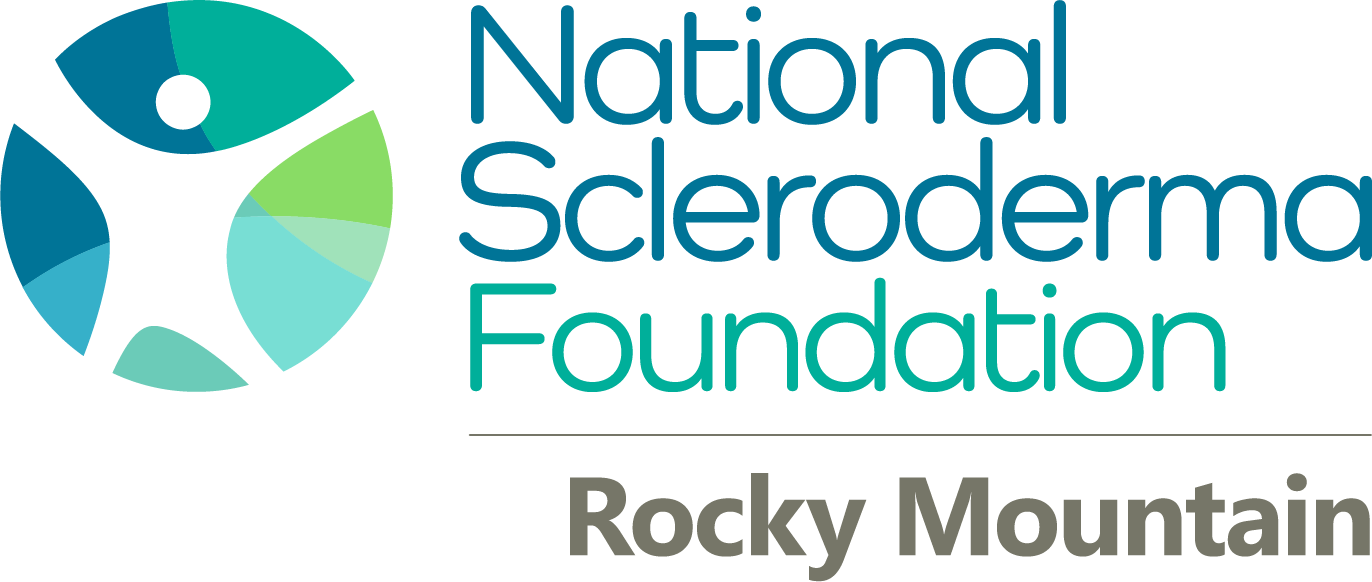About the National Scleroderma Foundation Rocky Mountain Chapter
Who We Are
The National Scleroderma Foundation is a federally qualified 501(c)(3) nonprofit dedicated to serving the needs of the scleroderma community. Our primary goals are to advance medical research, promote disease awareness, and provide support and education to people living with scleroderma, their families, and support networks. All donations are qualified charitable donations to the fullest extent of the law. Our federal tax identification number is 52-1375827.
All donations are gratefully accepted.
The National Scleroderma Foundation is a federally qualified 501(c)(3) nonprofit dedicated to serving the needs of the scleroderma community. Our primary goals are to advance medical research, promote disease awareness, and provide support and education to people living with scleroderma, their families, and support networks. All donations are qualified charitable donations to the fullest extent of the law. Our federal tax identification number is 52-1375827.
All donations are gratefully accepted.
What is Scleroderma?
Scleroderma, or systemic sclerosis, is a chronic connective tissue disease generally classified as one of the autoimmune rheumatic diseases. The word “scleroderma” comes from two Greek words: “sclero,” meaning hard, and “derma,” meaning skin. Hardening of the skin is one of the most visible manifestations of the disease. Stiff joints, digestive issues, lung scarring, and kidney failure can result. Scleroderma affects 300,000 Americans, yet few people have heard of it. Medications can sometimes help slow progression, but there is no cure.
Scleroderma, or systemic sclerosis, is a chronic connective tissue disease generally classified as one of the autoimmune rheumatic diseases. The word “scleroderma” comes from two Greek words: “sclero,” meaning hard, and “derma,” meaning skin. Hardening of the skin is one of the most visible manifestations of the disease. Stiff joints, digestive issues, lung scarring, and kidney failure can result. Scleroderma affects 300,000 Americans, yet few people have heard of it. Medications can sometimes help slow progression, but there is no cure.

